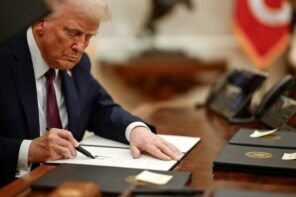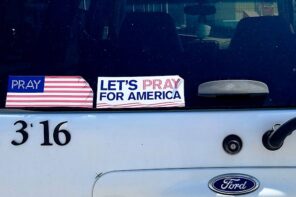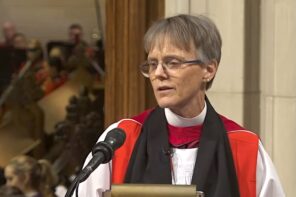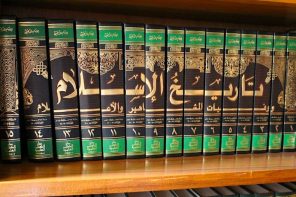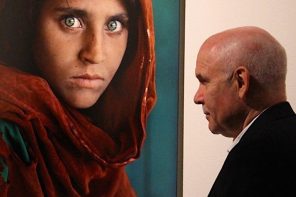Professor Rashid’s recent column decrying efforts by the Ahmadiyya Muslim Community to raise awareness to its mission and message (“Ahmadiyya Muslim Community Doesn’t Speak for All Muslims,” 7/30) suffers from several erroneous and perplexing statements.
First, Professor Rashid contends that the Ahmadiyya Muslim Community claims hegemony over the American Muslim voice. Exactly where Professor Rashid derives support for this contention is unclear. The official spokespersons for the Ahmadiyya Muslim Community have never claimed to represent all American Muslims. For example, Naseem Mahdi, Vice President of the Ahmadiyya Muslim Community, has repeatedly stressed on various media outlets, including Fox news, that he does not purport to represent other American Muslim organizations, but that he desires to work in collaboration with them. The Ahmadiyya Muslim Community has taken a vocal stance against extremism and disloyalty among American Muslims. Professor Rashid should not attack the Community for assuming the mantle of American Muslim leadership when other American Muslims have remained timid or silent on these issues.
Second, Professor Rashid contends that the American Muslim community is represented by a diverse range of organizations, and it is this very diversity that makes it difficult for any one Muslim organization to speak with any authority. Professor Rashid is correct to point out the diversity within the American Muslim community, but his explanation for why other large umbrella organizations fail to speak with authority is facile and unsatisfying. For starters, one wonders how large the “umbrella” is of organizations claiming to represent American Muslims. The Ahmadiyya Muslim Community does not appear to be welcome under that umbrella. For example, polling and census data collected and analyzed by American Muslim organizations never includes the opinions of the Ahmadiyya Muslim Community. Even Ahmadi Muslim mosques are not counted among the total number of mosques in America. As another example, when 86 Ahmadi Muslims were brutally massacred in twin bomb attacks in Lahore on May 28th, only one American Muslim leader offered condolences to the Community. More tellingly, Professor Rashid appears to blame American Muslim diversity for the failure of American Muslim organizations to speak out against extremism with the same fervor as the Ahmadiyya Muslim Community. Nothing is stopping American Muslim organizations from taking to the streets with a message of peace, loyalty and moderation. Such a unifying message transcends diversity within Muslim America.
Third, Professor Rashid contends that the Ahmadiyya Muslim Community should be more sensitive to the way Muslims are being portrayed as a community. Professor Rashid completely ignores the “Muslims For Peace” campaign currently underway by the Ahmadiyya Muslim Community. The very purpose of this campaign is to counter media stereotypes against Islam and to explain how Islam’s true and essential teachings resonate with the core principles of the American democratic system. Spokespersons for the Ahmadiyya Muslim Community have worked tirelessly to defend Islam from ignorant criticism. In fact, several American Muslims organizations have complimented the Ahmadiyya Muslim Community for undertaking this heroic campaign. It would be more productive for Professor Rashid to call on more American Muslims to join in the “Muslims For Peace” campaign instead of falsely accusing the Ahmadiyya Muslim Community for not being sensitive to other American Muslims.
Fourth, Professor Rashid takes aim at two op-eds written by individuals members of the Ahmadiyya Muslim Community. Of course, the individual opinions of members of the Ahmadiyya Muslim Community should not be imputed to the entire Community. Nevertheless, Professor Rashid unfairly attacks both opinions. First, Mr. Younus’s op-ed in the Baltimore Sun talks about the integration of Muslim and American identities — he does not assert that American Muslim youth are in an “either/or” situation. He also does not label the American Muslim community as “bad,” only those extreme individuals within that community who defame Islam by attacking America (e.g., Nadal Hasan, the Virginia Five, etc.). Second, Mr. Rashid’s op-ed in the Richmond Times-Dispatch critiques the manner in which the planners of the Cordoba Center sought community approval for its project. Again, he does not typecast “good” or “bad” American Muslims but simply reminds all Muslims to respect the sensitivities of one’s neighbors. Professor Rashid draws untenable inferences from each op-ed as a way to discourage the public pronouncements of the Ahmadiyya Muslim Community.
Professor Rashid also deliberately ignores several other op-eds written by official spokespersons of the Ahmadiyya Muslim Community concerning the Community’s mission and “Muslims For Peace” campaign. None of those op-eds purports to represent all Muslim viewpoints or all American Muslims. Rather, they articulate important ideas by American Muslims that have not yet been projected in the press. For example, in one op-ed a spokeswoman of the Ahmadiyya Muslim Community defends the separation of mosque and state — a critical concept that has yet to be adequately dealt with by American Muslim writers.
Finally, Professor Rashid contends that the Ahmadiyya Muslim Community is “tearing down” all other American Muslim organizations and stifling progress for American Muslims. This is a baseless allegation. Professor Rashid cannot point to a single example in support of his assertion. Since 1920, the Ahmadiyya Muslim Community has stood out as a peaceful and organized voice for moderate Islam in America. Its members have led a bloodless intellectual “jihad of the pen” against attacks on Islam. Ironically, some within the American Muslim community seek to tear down the Ahmadiyya Muslim Community; some have even gone so far as to sympathize with extremists abroad who have labeled Ahmadi Muslims as “wajib-ul-qatl” or “worthy of death.” For example, the Times Square bomber, Faisal Shezad, a United States citizen, was recruited and trained by the Tehrik-e-Taliban — the very group that proudly claimed responsibility for the May 28th attacks on the Ahmadiyya Muslim Community in Lahore. In short, the Ahmadiyya Muslim Community courageously seeks to defend Islam in the face of bitter persecution and hostility.
Groups like the Ahmadiyya Muslim Community deserve an opportunity to be heard in America. Instead of advancing and attacking straw man arguments, scholars like Professor Rashid should welcome a fresh perspective.
[Editor’s note: Dr. Rashid responds here.]